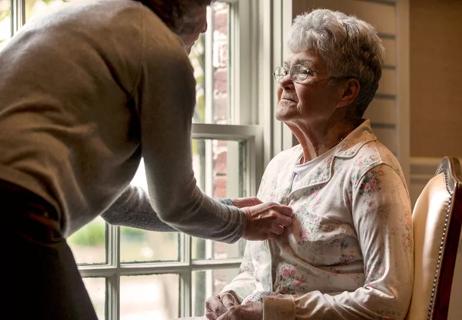Tips on what to say and how to act when someone has cancer

It can be hard to know what to say or how to act when someone you know and love has cancer. Maybe it’s your spouse, a coworker or a neighbor. But no matter what, it’s important to say and do the right things in order to offer support to the person.
Advertisement
Cleveland Clinic is a non-profit academic medical center. Advertising on our site helps support our mission. We do not endorse non-Cleveland Clinic products or services. Policy
Cancer care nurse Josette Snyder, RN, MSN, AOCN, says there is such a thing as “cancer etiquette.”
Cancer etiquette is interacting with someone with cancer in friendly, empathetic and appropriate ways. It’s showing that you acknowledge what they are going through — both physically and emotionally. It’s the awareness that cancer can affect everything in that person’s life.
You should respect, too, that everyone responds differently to events and experiences. People may not respond the way you would — and that’s OK. Accepting this can go a long way in talking with and helping someone you care about who has cancer.
Here’s what to keep in mind.
Advertisement
Advertisement
Learn more about our editorial process.
Advertisement

How to prepare when bringing older relatives in-house

Research consistently shows that soy-based foods do not increase your risk of breast cancer

When someone guilt trips you, they’re using emotionally manipulative behavior to try to get you to act a certain way

This behavior is usually a sign that the other person doesn’t know how to handle conflict or is prone to being passive-aggressive

Lung cancer and treatment can take its toll, but support is available to help you live well

Getting your treatment plan just right can take some fine-tuning, but the appointments will taper off

Side effects like nausea and fatigue are common, but there are ways to feel better

Going home isn’t always easy, but there are ways to ease any stress you might feel

Wearing a scarf, adjusting your outdoor activities and following your asthma treatment plan can help limit breathing problems

Your diet in the weeks, days and hours ahead of your race can power you to the finish line

When someone guilt trips you, they’re using emotionally manipulative behavior to try to get you to act a certain way